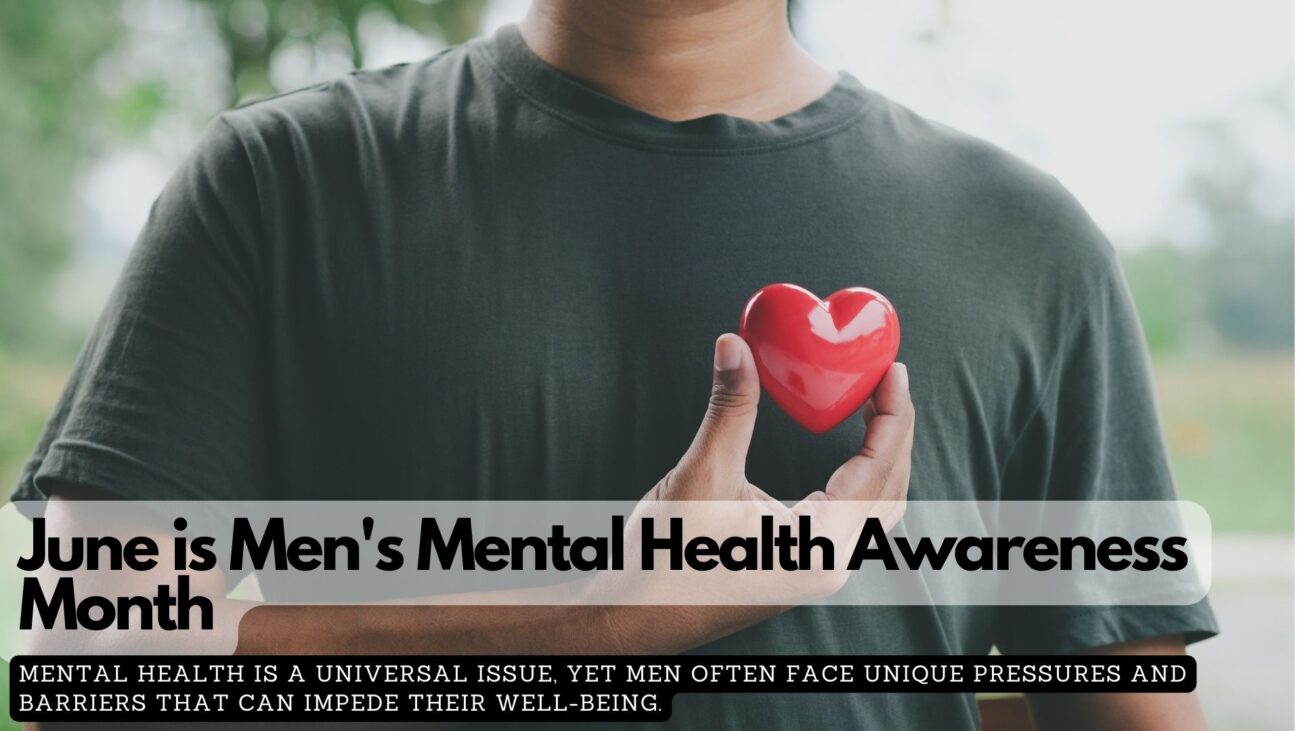June is Men’s Mental Health Awareness Month
June marks a significant period dedicated to a crucial but often overlooked aspect of health: Men’s Mental Health Awareness Month. This observance aims to shed light on the mental health challenges faced by men, promote open discussions, and encourage seeking help without stigma. Mental health is a universal issue, yet men often face unique pressures and barriers that can impede their well-being.
Understanding Men’s Mental Health
Men’s mental health encompasses a range of issues, from depression and anxiety to substance abuse and suicidal thoughts. According to the World Health Organization, approximately 264 million people globally suffer from depression, with men less likely to seek help than women. This reluctance often stems from societal expectations and cultural norms that emphasise stoicism and self-reliance in men, discouraging vulnerability and emotional openness.
The Stigma Surrounding Men’s Mental Health
Stigma plays a significant role in preventing men from addressing their mental health needs. Traditional gender roles often dictate that men should be strong, unemotional, and self-sufficient. As a result, admitting to mental health struggles can be seen as a sign of weakness, leading many men to suffer in silence. This can exacerbate mental health issues, potentially leading to severe consequences such as addiction, self-harm, or suicide.
Statistics and the Reality
The statistics surrounding men’s mental health are stark and alarming. In many countries, men are significantly more likely to die by suicide than women. In the past few years, there has been an increase in men dying by suicide. Additionally, men are more likely to engage in risky behaviours and less likely to seek mental health treatment.
Addressing the Issue: Breaking the Silence
Efforts to improve men’s mental health must begin with breaking the silence and challenging the stigma. Public health campaigns, community initiatives, and workplace programmes can all play a part in normalising conversations about mental health. By creating safe spaces for men to express their feelings and seek support, we can start to dismantle the barriers that prevent men from accessing the help they need.
Encouraging Help-Seeking Behaviour
Encouraging men to seek help is a critical component of addressing mental health issues. This can be facilitated through various means:
Education and awareness: increasing awareness about mental health and the specific challenges faced by men can help normalise the conversation. Educational programmes can be implemented in schools, workplaces, and community centres.
Support networks: building robust support networks is essential. Friends, family, and community groups can provide a lifeline for men struggling with mental health issues.
Accessible services: ensuring that mental health services are accessible, affordable, and tailored to the needs of men is crucial. This includes offering services that respect men’s experiences and cultural backgrounds.
Role models: prominent figures and celebrities speaking openly about their mental health struggles can have a powerful impact. These role models can inspire other men to seek help and show that vulnerability is a strength, not a weakness.
The Role of Society
Society plays a pivotal role in shaping attitudes towards mental health. By promoting a culture of empathy, understanding, and support, we can create an environment where men feel safe to seek help. Workplaces, schools, and communities must actively engage in fostering mental wellness and providing resources for those in need.






Facebook Comments